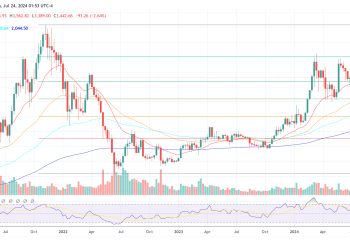“Dollarization” Contributing to “Cryptoization” of Emerging Markets, says IMF
This “cryptoization” can become a threat to fiscal policy as such developing nations should consider the benefits of issuing CBDCs as a response to the growing use of crypto, the Fund said.
The growing usage of cryptocurrencies in emerging markets could create the “cryptoization” of local economies, the International Monetary Fund (IMF) said on Friday.
This “cryptoization,” according to the international organization that promotes global financial stability, could potentially undermine exchange and capital controls and further upset financial stability in these markets.
The agency said that inefficient payment systems and unsound macroeconomic policies in emerging economies are among the drivers of cryptocurrency adoption. The lure of quick gains may also be another potential reason.
Weak domestic banking systems and the low credibility of central banks that fuel “dollarization” can further contribute to growing crypto use, according to the Fund.
“Dollarization can impede central banks’ effective implementation of monetary policy and lead to financial stability risks through currency mismatches on the balance sheets of banks, firms, and households.”
Here, wide adoption of stablecoins, which are usually backed by fiat, particularly USD, could also pose significant challenges by reinforcing existing dollarization forces, the IMF added.
But the Fund also said that the exact level of adoption of crypto assets in emerging economies was hard to gauge accurately.
In an August report, blockchain data platform Chainalysis noted that Vietnam, India, Pakistan, Kenya, and Nigeria are leading the crypto adoption globally.
The IMF said “cryptoization” can become a threat to fiscal policy as crypto assets potentially facilitate tax evasion. As such, it urged developing nations to strengthen macroeconomic policies and consider the possible benefits of issuing digital fiat – central bank digital currencies (CBDCs) as a response to the rise of crypto.



















